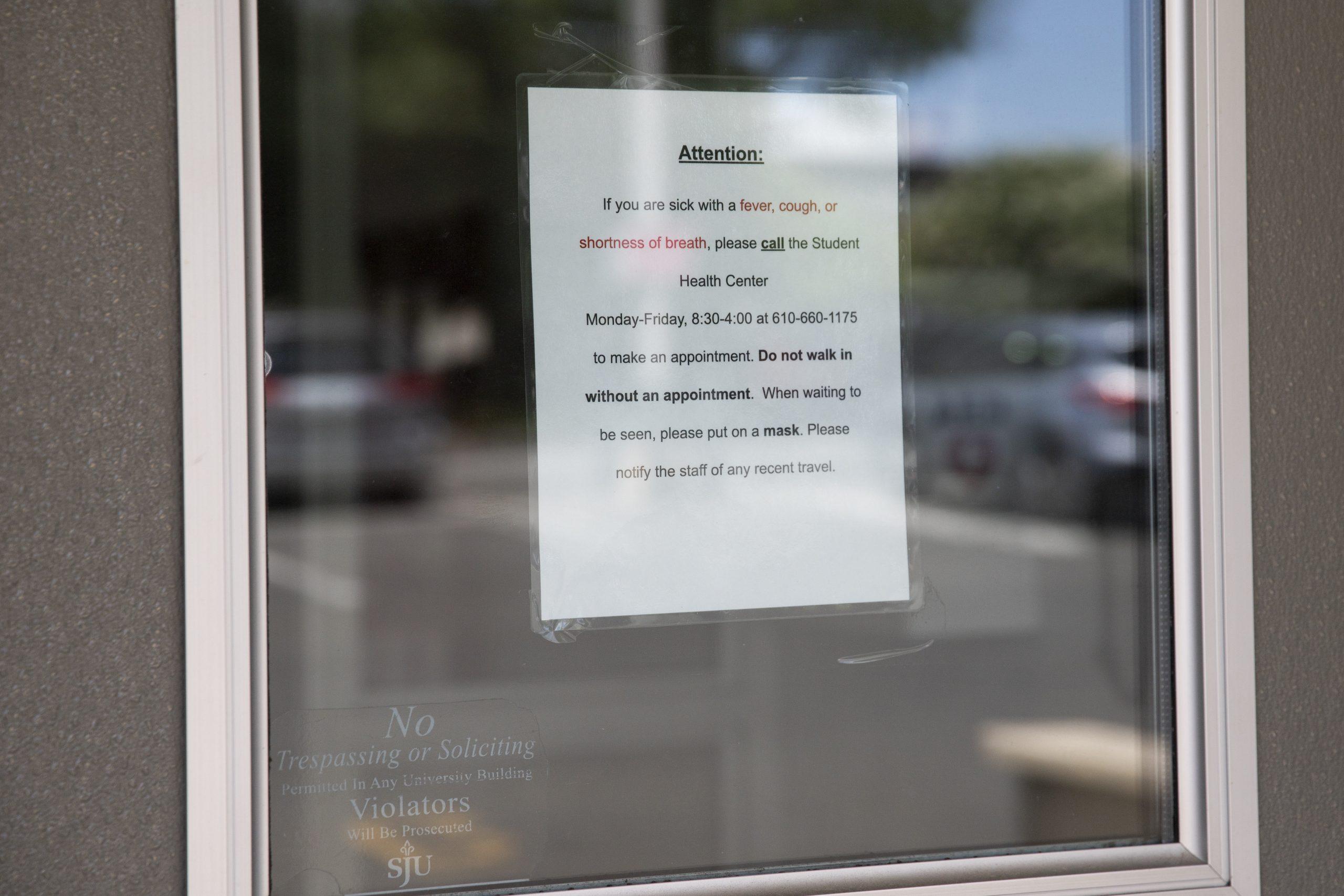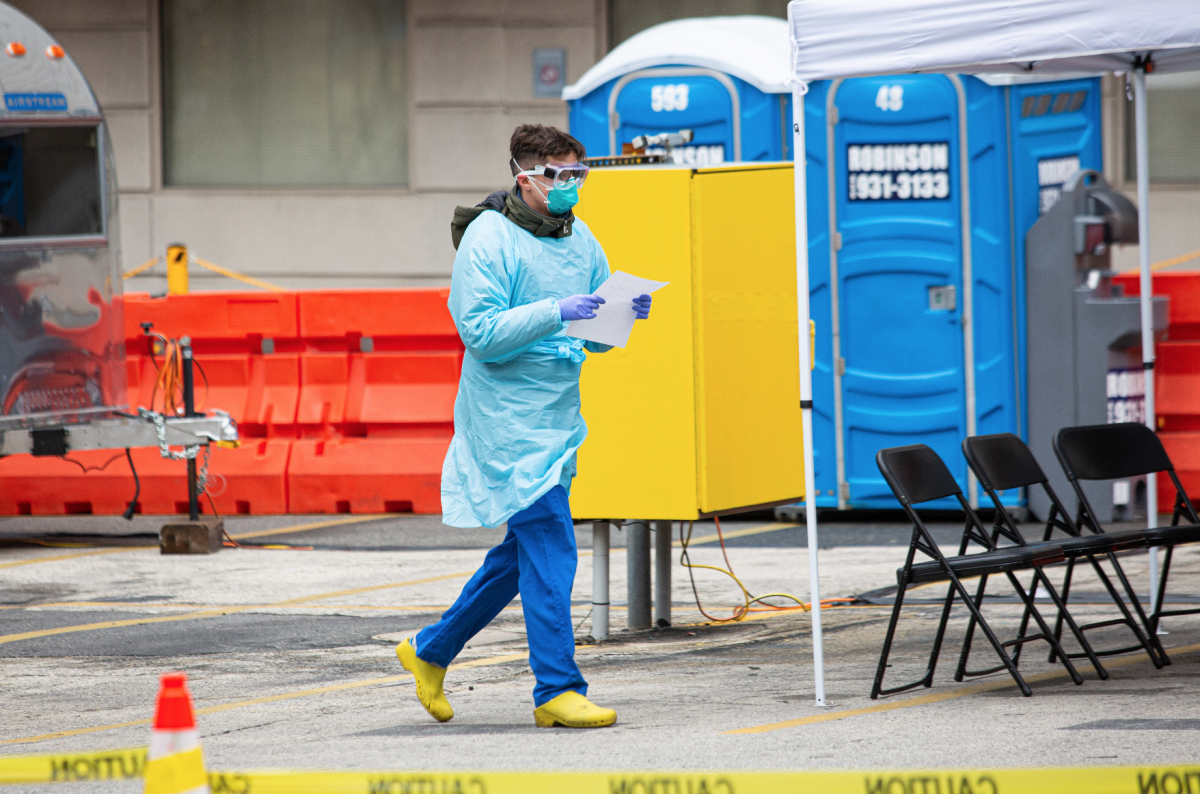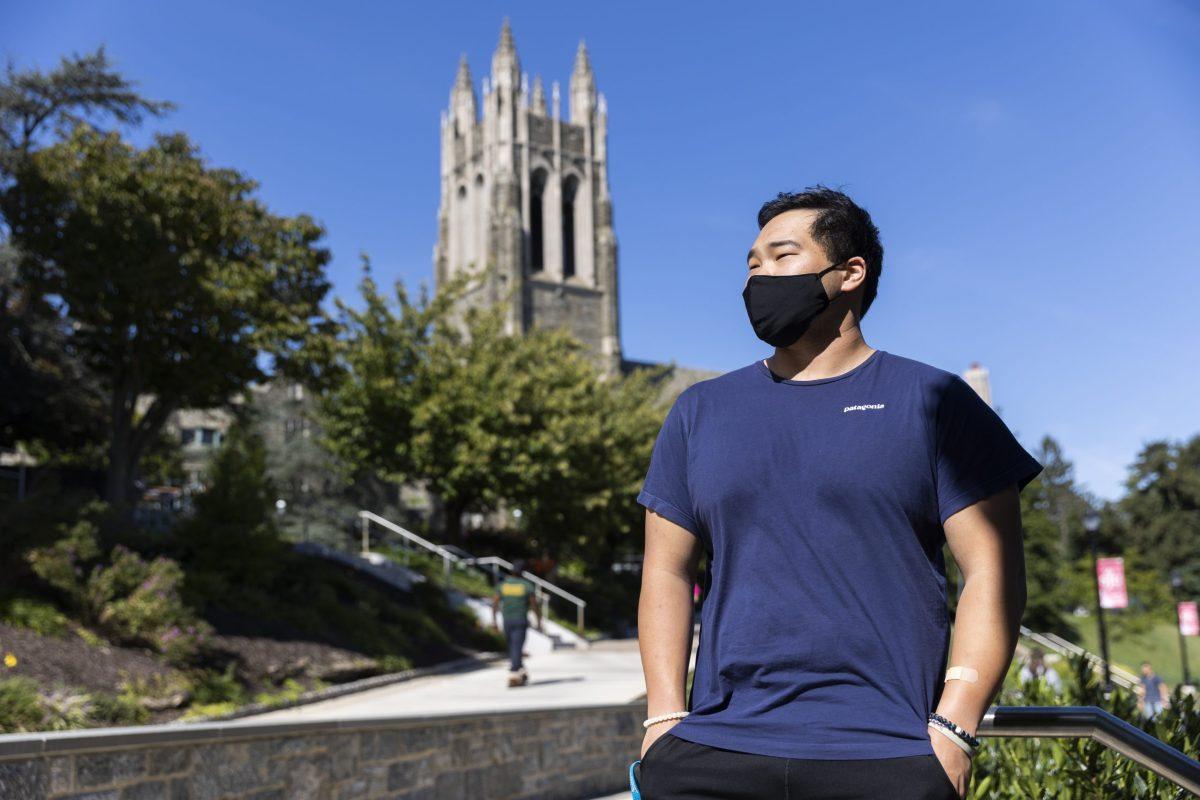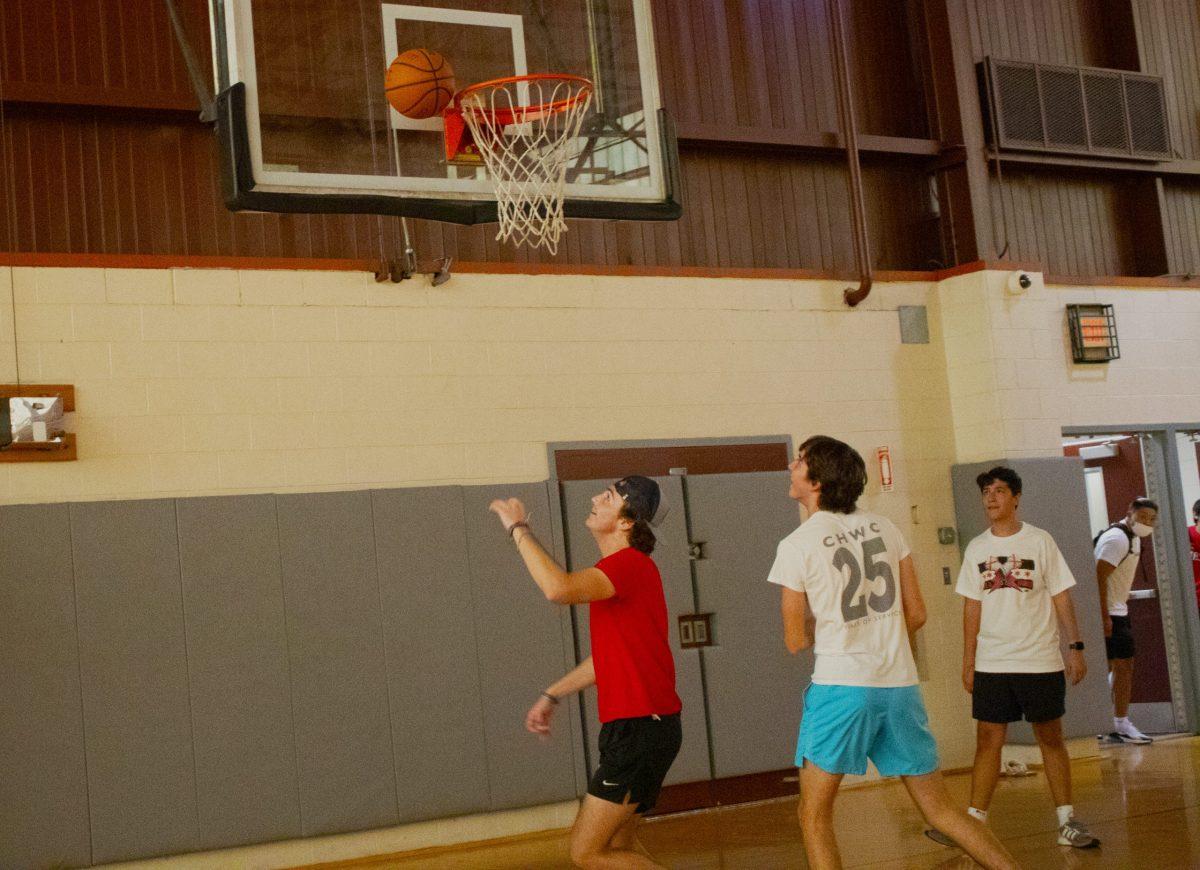St. Joe’s will provide a “campus arrival” COVID-19 test at no cost to all students, faculty and staff who plan to live, work or learn on campus this semester, as outlined in an Aug. 13 university announcement.
The testing will be conducted during the weeks of Aug. 17 and Aug. 24.
According to the announcement, while testing is “strongly recommended” for students, faculty and staff, it did not mention that tests will be mandatory for access to campus.
The arrival test the university will use is a RT-qPCR saliva test that has been approved by the U.S. Food and Drug Administration and can “detect viral genes two days after infection and up to 28 days after infection, delivering conclusive results in 98 percent of samples,” the announcement stated.
Saliva-based testing also offers an improvement over the standard nasopharyngeal swab because people can collect their own samples with minimal discomfort, according to TheScientist. The test involves collecting spit in a sterile tube and mailing it to a lab for processing.
The results of the test will be communicated to the individual, the university and public health department within 48 to 72 hours of administration of the test. Contract tracing will also be conducted on campus in coordination with county public health departments.
The university community will be notified when the first COVID-19 case is identified but specific details about the individual will not be released.
Gail Benner, director of PR and Media, wrote that certain residence halls would be used as spaces for quarantine and isolation in an Aug. 12 email in response to questions from The Hawk. Students who experience symptoms need to self-isolate and students coming from other countries, high risk states or have come in contact with people experiencing symptoms will need to self-quarantine before arriving on campus.
“Moore Hall is identified for self-isolation and Sourin Hall is for self-quarantine––both for residential students,” Benner said. “This could change based on evolving needs. Students living off campus or at home will need to isolate or quarantine at those locations. In short, isolation is for sick individuals while quarantine is for someone who is not sick.”
Benner added that residential students have the option of returning home to isolate or quarantine, but “should consider the health of their household members before doing so.” Additionally, students living off campus should self-isolate or self-quarantine in those spaces according to Benner.
Villanova University, The University of Pennsylvania and Drexel University each released COVID-19 testing protocols in July. All three universities require students to take at least one COVID-19 test prior to their arrival to campus, according to information on their respective websites.
Temple University also released testing plans for their community in June, and while COVID-19 tests are not mandatory, a designated testing site on campus will be available to all students, faculty and staff throughout the semester.
St. Joe’s has not yet released details regarding a designated testing site for the campus arrival testing, but “additional information about testing logistics will be provided next week,” the Aug. 13 announcement stated.
Jillian Garvey ’21, University Student Senate president, said testing during the fall semester will be available at Quirk Hall as well as through Main Line Health, according to a conversation she had with Cary Anderson, associate provost and vice president of student life.
Garvey said that “with contact tracing and to reduce contact with residents, they’re moving the Health Center to Quirk [Hall] this year” from its original location in Sourin Hall.

According to the university’s Hawk Hill Ready Health and Safety Plan, on-campus testing after the initial round of arrival tests, which are for asymptomatic individuals, and include faculty and staff, will be provided throughout the fall semester but only for symptomatic students and their close contacts.
Unlike the free arrival test, on-campus testing for symptomatic students will be billed to the insurance provider.
AppArmour, which provides users with self-assessment questions to screen for symptoms of COVID-19, will be recommended to students to track potential symptoms, Garvey said.
“You can go through your symptoms and essentially it’s there just to check yourself and see, ‘I said yes to this many situations. This is the step I should be going to next,’” Garvey said.
Other universities within the Philadelphia area are similarly using symptom tracking apps to monitor students’ symptoms. Drexel University, Villanova University and The University of Pennsylvania are each encouraging their students to utilize their respective symptom tracking technology, the Drexel Health Tracker app, the Nova Now app and the PennOpen website portal, respectively.
At St. Joe’s, students who experience COVID-19 symptoms are instructed to call the Office of Public Safety & Security, according to the Hawk Hill Ready Health and Safety Plan.
Garvey said the university needs to continue to be transparent and communicate clearly to students what a return to campus will be like this fall.
“They have their very thorough 30-page document,” Garvey said, referring to the Hawk Hill Ready Health and Safety Plan, “but you can’t expect students to go through all of that. So I think there should be better communication about what the campus will look like, and if you have questions, maybe hold an open forum.”
UPDATE, Aug. 17:
Testing during the weeks of Aug. 17 and Aug. 24 will take place on Quinn Track at Sweeney Field, according to an Aug. 17 university announcement.
Different student groups are asked to attend testing on certain days. The testing of first year residential students as well as faculty and staff is reserved to take place on Aug. 20 and Aug. 21. Upper Class residential students follow on Aug. 22 and 23, with non residential undergraduates designated to be tested on Aug. 24 and 25.
“If you are unable to attend the session designated for your cohort, please visit the testing site when you are able during any of the sessions,” the announcement said.
Students are to enter from the gate closest to Michael J. Hagan ’85 Arena, bringing their smartphone and their St. Joe’s student ID card. St. Joe’s is also asking students not to eat, drink, smoke or chew gum in the 30 minutes prior to the test.
“Your results will be delivered to your email and the University within 48-72 hours after the sample is received by the lab,” the announcement said.



















































